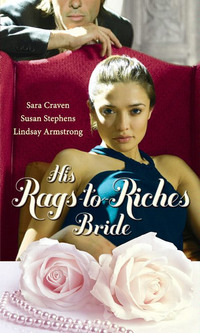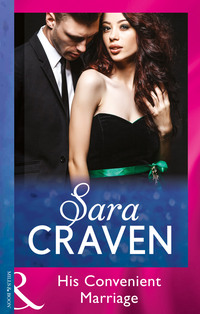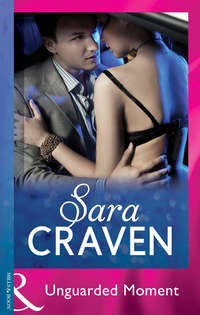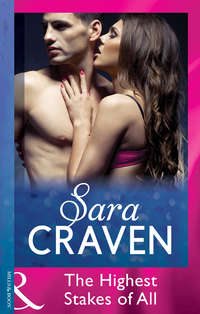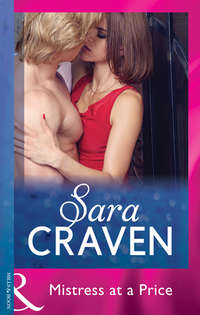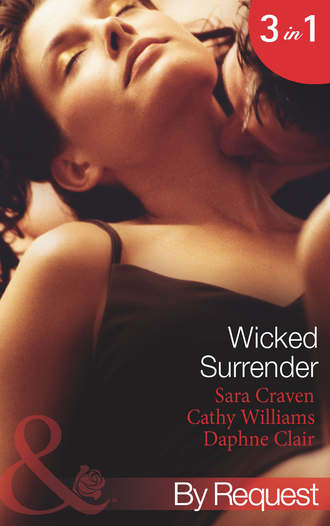
Полная версия
Wicked Surrender: Ruthless Awakening / The Multi-Millionaire's Virgin Mistress / The Timber Baron's Virgin Bride

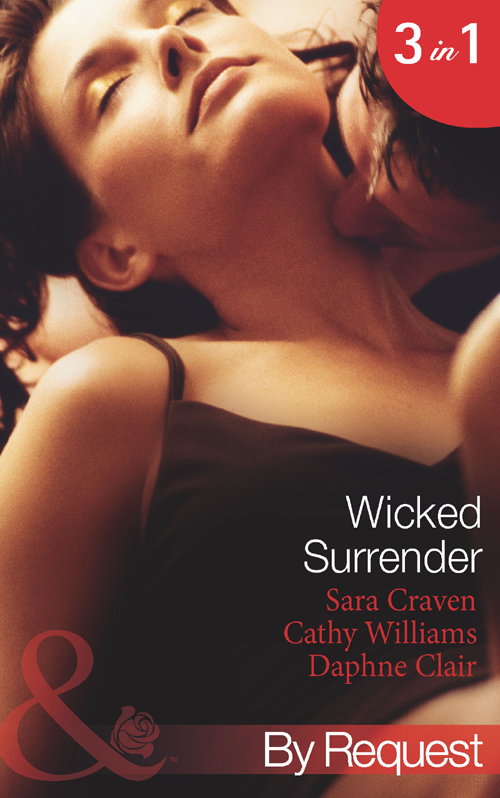
Wicked Surrender
Ruthless Awakening
Sara Craven
The Multi-Millionaire’S Virgin Mistress
Cathy Williams
The Timber Baron’s Virgin Bride
Daphne Clair

Table of Contents
Cover
Title Page
Ruthless Awakening
About the Author
Chapter One
Chapter Two
Chapter Three
Chapter Four
Chapter Five
Chapter Six
Chapter Seven
Chapter Eight
Chapter Nine
Chapter Ten
Chapter Eleven
Chapter Twelve
The Multi-Millionaire’s Virgin Mistress
About the Author
Prologue
Chapter One
Chapter Two
Chapter Three
Chapter Four
Chapter Five
Chapter Six
Chapter Seven
Chapter Eight
Chapter Nine
The Timber Baron’s Virgin Bride
About the Author
Chapter One
Chapter Two
Chapter Three
Chapter Four
Chapter Five
Chapter Six
Chapter Seven
Chapter Eight
Chapter Nine
Chapter Ten
Chapter Eleven
Epilogue
Copyright
SARA CRAVEN was born in south Devon and grew up surrounded by books in a house by the sea. After leaving grammar school she worked as a local journalist, covering everything from flower shows to murders. She started writing for Mills & Boon in 1975. She has appeared as a contestant on the UK Channel Four game show Fifteen to One and in 1997 won the title of Television Mastermind of Great Britain.
Sara shares her Somerset home with several thousand books and an amazing video and DVD collection.
When she’s not writing, she likes to travel in Europe, particularly Greece and Italy. She loves music, theater, cooking and eating in good restaurants, but reading will always be her greatest passion.
Since the birth of her twin grandchildren in New York City, she has become a regular visitor to the Big Apple.
CHAPTER ONE
AS THE train from London crossed the Tamar, Rhianna felt the butterflies in her stomach turn into sick, churning panic.
I shouldn’t be doing this, she thought desperately. I have no right to go to this wedding. To stand in Polkernick Church, watching as Carrie gets married to Simon. I should have kept away. I knew it before the invitation came. And even before it was made forcefully clear to me that I wouldn’t be welcome. That I should keep my distance.
So how can I be on this train—making this journey?
Ever since the engagement had been announced she’d been dreading the arrival of the elegantly embossed card, and had already drafted her polite letter of regret with the same excuse—the shooting schedule on the next series—that she’d previously used to get out of being a bridesmaid.
And then Carrie had phoned unexpectedly to say she was coming to London trousseau-shopping, and would Rhianna meet her for a girls’ lunch?
‘You must come, darling.’ Her voice had been eager, laughing. ‘Because it might just be the last one now that Simon’s got this job in Cape Town. Heaven knows when we’ll be back in the UK.’
‘Cape Town?’ Rhianna had heard the sharp note in her voice and cursed herself. She’d made herself speak more lightly. ‘I had no idea that he—that you were planning to live abroad.’ Nothing’s been said…
‘Oh, it wasn’t planned,’ Carrie had said blithely. ‘Someone Diaz knows had an opening in his company, and made Simon an offer that was too good to miss.’
Diaz…
Rhianna had repeated the name under her breath, tension clenching like a fist in her stomach. Yes, she’d thought dully. Painfully. It would have to be Diaz. Making sure that Simon was removed to a safe distance. Out of harm’s way. Regardless of the damage already done, which would be left behind.
Diaz—twitching the strings from across continents and oceans to make sure the puppets danced to his tune, and that Carrie, his much-loved young cousin, would walk up the aisle of the twelfth-century church in the village to be united with the man she’d adored since childhood.
The perfect match, she’d thought, her throat tightening. And nothing would be allowed to prevent it.
She should have made some excuse about lunch, and she knew it, but she’d been torn between the pleasure of seeing Carrie again and the anguish of keeping silent while the other girl talked about Simon and her plans for the wedding. Of making sure that not one word, one look or one hint escaped her.
But, dear God, it had been so hard to sit opposite Carrie and see her pretty face radiant with happiness. To see the dream in her eyes and know how hideously simple it would be to turn that inner vision into a nightmare.
How simple, and how utterly impossible.
‘So you will be coming to the wedding—you promise faithfully?’ Carrie had begged. ‘You’ll introduce a note of sanity into the proceedings, darling. A rock for me to cling to, because by then I’ll need it,’ she’d added, shuddering. ‘With the respective mothers already circling each other in a state of armed neutrality. I reckon there could be blood on the carpet before the great day dawns.’
And Rhianna had agreed. Because the only reasons she was left with to justify her absence were the ones she could never say.
But mainly because Carrie was her friend. Had been her first real friend, and shown her the only genuine kindness she’d ever known at Penvarnon. She—and Simon, of course. Which was how the trouble had first begun…
And now Carrie, who loved her, was here to make innocently sure that wild horses wouldn’t keep Rhianna from attending her wedding.
But wild horses didn’t even feature, Rhianna thought, her mouth twisting harshly. Not when they were up against the arrogant power of Diaz Penvarnon.
Against whose expressed will she was travelling to Cornwall. Defying his mandate.
His anger had been like a dark cloud, waiting in the corner of her mind to become a storm. A tangible thing, as if he were still standing over her, his lean face inimical.
‘Don’t say you weren’t warned…’
As she remembered, her mouth felt suddenly dry, and she uncapped the bottle of mineral water on the table in front of her and drank it down without bothering with the glass the attendant had brought her.
Pull yourself together, she thought. You’ll be in Cornwall for three days—four at the outside. And once Carrie’s wedding is over you’ll be gone—for good this time.
Besides, Diaz probably won’t even be there. He’ll be back in South America, arrogantly confident that his commands will be obeyed in his absence.
The rest of the occupants of that big grey stone house on the headland might not relish her presence, but there was no one who could really hurt her any more, she thought, her mouth tightening. No one to look down on her or treat her like an intruder. That section of her life was in the past, and she would make sure it stayed that way.
Because she was no longer the housekeeper’s unwanted niece, the skinny waif that the daughter of the house, Caroline Seymour, had inexplicably and unsuitably decided to befriend and had stubbornly refused to give up in the face of concerted family opposition.
She was Rhianna Carlow, television actress and current star of the award winning drama series Castle Pride. An independent woman, with her own life and her own flat, who didn’t have to dress in clothing from charity shops and jumble sales any more, or say thank you to anyone but herself.
She was a success—a face that people recognised. A few hours ago she’d seen some of the other passengers in this first-class carriage nudging each other and whispering as she’d taken her seat at Paddington.
She knew from past experience that it would only be a matter of time before someone asked her for an autograph, or permission to take a picture of her with a mobile phone, because that was generally what happened. And she would smile and acquiesce, so that the person asking the favour would go away saying how lovely she was—how charming.
And another brief performance would have been given.
But that was the easy part of being Rhianna Carlow. Because she knew it would take every scrap of acting ability she possessed to stand in silence the day after tomorrow and watch Carrie become Simon’s wife. To hear him say, ‘Forsaking all others…’ when he knew that she, Rhianna, would be in the congregation, listening to him, angry, hurt—and above all, anxious for Carrie.
When every nerve in her body would be urging her to cry out, No, this can’t happen. I won’t let it. It has to stop right here—right now. For everyone’s sake.
And weren’t you supposed to be cruel in order to be kind? she asked herself restlessly. Wasn’t that one of the relentless clichés that people trotted out, usually to justify some piece of deliberate malice?
But could she stand up and tell the truth and see the light slowly die from Carrie’s bright face when she realised just how fundamentally Simon had betrayed her?
It would be like, she thought dispassionately, watching an eclipse of the sun, knowing that this time it would be permanent and there would be no returning radiance.
Carrie had always been a sunshine girl, lit from within, fair-haired and merry-faced, drawing Rhianna, the outsider, the dark moon, into her orbit.
Compensating over and over again for her aunt Kezia’s unrelenting coldness, and the aloofness bordering on hostility displayed by the rest of the family at Penvarnon House.
From the first day that was how it had been, she thought. When she’d stood, an unhappy twelve-year-old, shivering in the brisk wind, at the top of the flight of steps that led down to the lawns, knowing guiltily that already she’d broken her aunt’s first rule that she should never—ever—stray into the environs of the house and its grounds.
Knowing that her home was now a chillingly neat flat, converted from the former stable block, and that if she wished to play she should do so only in the stable yard outside.
‘Allowing you here is a great concession by Mrs Seymour, and you must always be grateful for that,’ Aunt Kezia had told her repressively. ‘But it’s on condition that you confine your activities to our own quarters and not go beyond them. Do you understand?’
No, Rhianna had thought with a kind of desolate rebellion, I don’t understand. I don’t know why Mummy had to die, or why I couldn’t stay in London with Mr and Mrs Jessop, because they offered to have me. I don’t know why you came and brought me away to a place where no one wants me—least of all you. A place with the sea all round it, cutting me off from everything I know. Somewhere that I don’t want to be.
She hadn’t meant to be disobedient, but the minimal attractions of the stable yard, with its cobbles and long-unused row of loose boxes, had palled within minutes, and a half-open gate had beckoned to her in a way it had been impossible to resist. Just a quick look, she’d promised herself, at the place where she’d be spending the next few years of her life, then she would come back, and close the gate, and no-one would be any the wiser.
So, she’d followed the gravel walk round the side of the looming bulk that was Penvarnon House and found herself at its rear, confronted by lawns that stretched to the very edge of the headland. And racing across the grass towards her had been two children.
The girl had reached the foot of the steps first, and looked up, laughing.
‘Hello. I’m Carrie Seymour, and this is Simon. Has your mother brought you to have tea? How grim and grizzly. We were just going down to the cove, so why don’t you come with us instead?’
‘I can’t.’ Rhianna swallowed, dismally realising the trouble she was in.
‘I shouldn’t even be here. My aunt told me I must stay by the stables.’
‘Your aunt?’ the girl asked, and paused. ‘Oh, you must be Miss Trewint’s niece,’ she went on more slowly, adding doubtfully, ‘I heard Mummy and Daddy talking about you.’ There was another silence, then her face brightened again. ‘But you can’t hang round the yard all day with nothing to do. That’s silly. Come with Simon and me. I’ll make it all right with Mother and Miss Trewint, you’ll see.’
And somehow, miraculously, she had done exactly that—by dint, Rhianna thought drily, of smiling seraphically and refusing to budge. Just like always.
Rhianna, she’d insisted cheerfully, had come to live at Penvarnon House and therefore they would be friends. End of story.
And start of another, very different narrative, Rhianna thought. Although none of us knew it at the time. A story of past secrets, unhappiness and betrayal. And this time there would be no happy ending.
I should have stayed by the stables, she thought with irony. It was safer there. I should never have gone down the path to the cove and spent the afternoon climbing over rocks, peering into pools, running races along the sand and splashing barefoot in the freezing shallows of the sea. Discovering childhood again. Drawing my first breath of happiness in weeks.
She’d assumed that Simon—tall, also blond-haired and blue-eyed, and clearly older than Carrie by a couple of years or more—was Carrie’s brother, but she had been mistaken.
‘My brother? Heavens, no. Both of us are “onlys”, like you,’ Carrie had said blithely. ‘He’s just a grockle—an emmet.’ And she’d dodged, laughing, as Simon lunged at her with a menacing growl.
‘What’s a—grockle?’ Rhianna asked doubtfully.
‘An incomer,’ Simon informed her, pulling a face. ‘A tourist. Someone who doesn’t live in Cornwall but only comes here for holidays. And an emmet is an ant,’ he added, looking darkly at Carrie. ‘Because in the summer that’s what the tourists are like—all over the place in droves. But we’re not either of those things, because we have a house just outside the village and spend half our lives down here.’
‘So we have to put up with him for weeks at a time,’ Carrie said mournfully. ‘What an utter drag.’
But even then, young as they all were, some instinct had told Rhianna that Carrie didn’t mean it, and that Simon, the golden, the glorious, was already the centre of her small universe.
Both of them, she’d discovered, would be going back to their respective boarding schools at the end of the Easter holidays, whereas she would be attending the local secondary school at Lanzion.
‘But there’ll be half-term to look forward to,’ Carrie had said eagerly. ‘And then we’ll have nearly eight weeks in the summer. The sea’s really safe down at the cove, so we can swim every day, and have picnics, and if the weather’s foul we can use The Cabin.’
She was referring to the large wooden building tucked under the cliff, which, as Rhianna was to discover, not only housed sunbeds and deckchairs, but had a spacious living area with its own tiny galley kitchen, an ancient sagging sofa, and a table big enough to sit round to eat or play games. The late Ben Penarvon, Diaz’s father, had even had the place wired for electricity.
‘It’s going to be great,’ Carrie had added, her grin lighting up the world. ‘I’m really glad you came to live here.’
And even Aunt Kezia’s overt disapproval, and the fact that Moira Seymour, Carrie’s mother, had looked right through her on their rare encounters, had not been able to take the edge off Rhianna’s growing contentment. The feeling that she could relax and allow herself to feel more settled.
She’d still grieved for her mother—the more so since Aunt Kezia had made it clear that any mention of Grace Carlow’s name was taboo. At the same time Rhianna had realised that there was not one photograph of her mother, or any family mementoes, anywhere in the cheerless little flat. Moreover, her own framed photo of her parents’ wedding, which she’d put on the table beside her narrow bed, had been removed and placed in the chest of drawers.
‘I have quite enough to do in the house,’ Aunt Kezia had returned brusquely when Rhianna, upset, had tried to protest. ‘I’m not coming back here and having to dust round your nonsense.’
On the upside, she’d liked her new school, too, and had come home at the end of the summer term excited at being given a part in the school play, which would be rehearsed during the autumn and staged before Christmas.
But, to her shock and disappointment, Aunt Kezia had rounded on her. ‘You’ll do nothing of the kind,’ she declared tight-lipped. ‘I won’t have you putting yourself forward, giving yourself airs, because it only leads to trouble. And there’s been too much of that in the past,’ she added with angry bitterness. ‘Quite apart from this nonsense with Miss Caroline. And after all I said to you, too.’
She drew a harsh breath. ‘Kindly remember that you’re only here on sufferance, my girl, and learn to keep in the background more than you have been doing while you’re living in Mrs Seymour’s house.’
‘But it isn’t her house,’ Rhianna objected. ‘Carrie told me it really belongs to her cousin, Diaz, but he’s away most of the time, either living on his other estates in South America or travelling all over the world as a mining consultant. So her parents look after it for him. She says when he decides to get married they’ll have to find somewhere else to live.’
‘Miss Caroline says a deal too much,’ her aunt said grimly. ‘And I’m still going to have a word with your teacher. Knock this acting nonsense on the head once and for all.’
And, in spite of Rhianna’s tearful protests, she’d done exactly that.
‘Poor you,’ Carrie had said, her forehead wrinkled with concern when Rhianna had eventually told her what had happened. ‘She’s so hard on you all the time. Has she always been like that?’
Rhianna shook her head. ‘I don’t know,’ she said unhappily. ‘I only met her for the first time when she came to Mummy’s funeral and told me that she’d been appointed my legal guardian and I had to live with her. Before that I’d never heard from her at all—not even on my birthday or at Christmas. And I could tell she was angry about having to take me.’ She sighed. ‘I’m not really welcome here either. I just wish someone would tell me what I’ve done that’s so wrong.’
‘It’s not you,’ Carrie said hesitantly. ‘I—I’m sure it’s not.’
Rhianna bit her lip. ‘You said once you’d heard your parents talking about me. Would you tell me what they said?’
Carrie’s face was pink with dismay. After a pause, she said, ‘It was ages ago, so I’m not sure I remember exactly. Besides, I shouldn’t have been listening anyway,’ she added glumly. ‘And I’m sure it would be better coming from your aunt.’
‘She won’t talk about it,’ Rhianna said bitterly. ‘She doesn’t talk about anything.’ She looked beseechingly at the other girl. ‘Oh, please, Carrie. I really need to know why they all seem to hate me so much.’
Carrie sighed. ‘Well—I was on the window seat in the drawing room, reading, and my parents came in. They didn’t realise I was there, and Mummy was saying, “I can hardly believe that Kezia Trewint would do such a thing. Agree to take in that woman’s child—and have the gall to ask to bring her here.” Daddy said he supposed she hadn’t had much choice in the matter, and he told Mummy not to do anything too hasty, because they’d never find anyone to run the house and cook as well as your aunt.’
She swallowed. ‘Then he said, “And it’s hardly the child’s fault. You can’t blame her for things that her mother did years before she was born. And that’s how it was, so don’t start thinking anything nonsensical.” Then Mummy got cross and said that your mother was—not a nice person,’ Carrie added in a little embarrassed rush. ‘And that the apple never fell far from the tree, and what the hell would Diaz say when he heard? Daddy said, “God only knows,” and he thought that everyone should reserve judgement and give you a chance. Then he went off to the golf club.’
She added tearfully, ‘I’m so sorry, Rhianna. I should never have listened, but when I met you I was really glad, because you looked so unhappy and lost, and I told myself that Daddy was right. Only now I’m afraid I’ve made everything a hundred times worse.’
‘No,’ Rhianna said slowly. ‘No, you haven’t—I promise. Because I—I really wanted to know.’ She flung back her head. ‘Besides, none of it’s true. Mummy wasn’t a bit like that. She was a wonderful person.’
And so beautiful too, she thought, with all that deep, dark auburn hair that Daddy said was the colour of mahogany, and the green eyes that tilted at the corners when she laughed. Whereas my hair is just—red.
She swallowed. ‘After Daddy died she got a job as a care worker, and the people she visited really loved her. They all said so. And Mrs Jessop told someone that if Mummy hadn’t been so involved with looking after everyone else she might have thought about herself more, and realised there was something wrong. Seen a doctor before it was—too late.’ Her voice wobbled. ‘So, you see, there must be some mistake. There has to be.’
Carrie gave her a comforting pat. ‘I’m sure,’ she said, but her anxious eyes said that even if her parents had been wrong, that still didn’t explain Kezia Trewint’s strange, unloving attitude to her only living relative.
Understanding that had still been a long way in the future, Rhianna thought wearily, leaning back in her seat and closing her eyes. In the meantime it had remained on the edge of her life, a cloud no bigger than a man’s hand, yet occasionally ominously hinting at the storm to come.
Like the day she’d encountered Diaz Penvarnon for the first time.
It had been, she remembered, one of those burning, windless days in August, when the sun seemed close enough to touch.
They’d been down at the beach all day, slipping in and out of the unruffled sea like seals, Rhianna by then as competent and confident a swimmer as the other two. It had been Simon who’d called a halt, explaining that he needed to get back as his parents had friends coming to dinner.
In spite of the heat, it had always been a matter of honour to see who could get to the top of the cliff path ahead of the others. The girls rarely won against Simon’s long legs, but this particular afternoon he had dropped one of his new trainers in the loose sand at the foot of the cliff and halted to retrieve it, so that Carrie and Rhianna had found themselves unexpectedly ahead, flying neck and neck up the stony track.
And when Carrie had stumbled Rhianna had got there first, laughing and breathless, head down as she launched herself towards some invisible finishing tape.
Only to cannon into something tall, solid and all too real, finding, as she had staggered back with a gasp of shock, strong hands grasping her shoulders to steady her, while a man’s cool voice had said, ‘So—what have we here? A fleeing trespasser? This is private land, you know.’
She looked up dazedly into the face above her, swarthy and lean, with high cheekbones only to see the faint amusement fade from the firm mouth and the grey eyes become as icy as snow clouds in January. He studied her in return, his glance shifting with a kind of incredulity from her unruly cloud of hair to her long-lashed eyes and her startled, parted lips.


